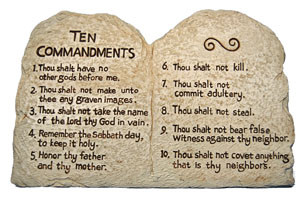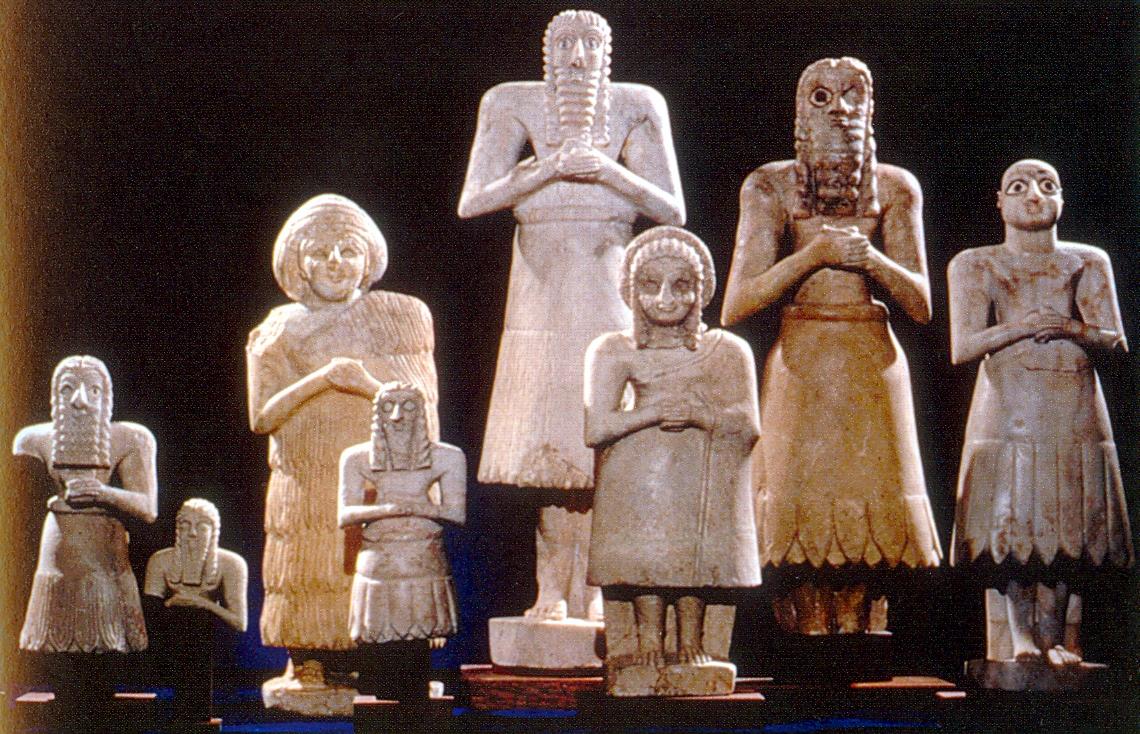As Moses approached the end of his life, he faced the prospect of leaving his people to the leadership of someone else, Joshua. Under such circumstances, it is natural for the outgoing leader to believe that his successor will be unable to match the leadership that he had given. It is just part of the fallen nature of men to think that no one else can do the job as well as we could.
He gives a sermon to Israel, warning them of consequences if they failed to be faithful to God, or, in contrast, the blessings that would come from faithfulness. In that sermon, we find this paragraph (Deuteronomy 29:2-9): "You have seen all that the Lord did before your eyes in the land of Egypt, to Pharaoh and to all his servants and to all his land, the great trials that your eyes saw, the signs, and those great wonders. But, to this day, the Lord has not given you a heart to understand or eyes to see or ears to hear. I have led you forty years in the wilderness. Your clothes have not worn out on you, and your sandals have not worn off your feet. You have not eaten bread, and you have not drunk wine or strong drink, that you may know that I am the Lord your God. And when you came to this place, Sihon the king of Heshbon and Og the king of Bashan came against us to battle, but we defeated them. We took their land, and gave it for inheritance to the Reubenite, the Gadites, and the half-tribe of the Manassites. Therefore, keep the words of this covenant and do them, that you may prosper in all that you do."
Moses gives a partial recapitulation of the miraculous events that Israel had seen, ranging from God's judgments on the Egyptians, sustaining them in the wilderness, and, most recently, the defeat of Sihon and Og, powerful Canaanite kings. But, in the midst of that recapitulation, he says something odd: "But, to this day, the Lord has not given you a heart to understand or eyes to see or ears to hear" (verse 4).
God had given Israel every possible evidence that He was real and that He had chosen Israel as His special covenant people. We read this passage and assume that any rational people would understand that Jehovah is God, with absolute power over the nations. Yet, we know that Israel quickly descended into idolatry. In Judges 17:6 (and repeated in 21:25), we are told, "In those days there was no king in Israel. Everyone did what was right in his own eyes."
How could there be such a disconnect between the evidence of their eyes and the unbelief in their hearts?
Moses tells us how: "To this day the Lord has not given you heart to understand or eyes to see or ears to hear" (Deuteronomy 29:4). The same characteristic would later be addressed by the prophets (e. g., Isaiah 6:9 and Jeremiah 5:21), and even by Jesus Himself (Matthew 13:14-15). Contrary to our view of ourselves, fallen men do not have a natural ability to see the hand of God and give Him the thanks that he deserves. Rather, we love sin more than God, and, therefore, suppress our knowledge of His reality and goodness (Romans 1:18-22).
This inclination has significant implications for apologetics and evangelism. When we explain the Gospel to unbelievers, their inclination to reject it is not because of a lack of evidence. They already know that the Gospel is true! Rather, their consciences tell them that recognizing the reality of the Gospel would require that they repudiate sin. And they love sin more than they love God! It is not within the power of the Christian to break that addiction in the unbeliever. It is only the Holy Spirit who can do that. Yes, belief requires the power of omnipotent God to triumph over unbelief.








:max_bytes(150000):strip_icc()/__opt__aboutcom__coeus__resources__content_migration__mnn__images__2019__11__confusion_illustration-a9450ab9f6f94f67a5961693b323f681.jpg)














